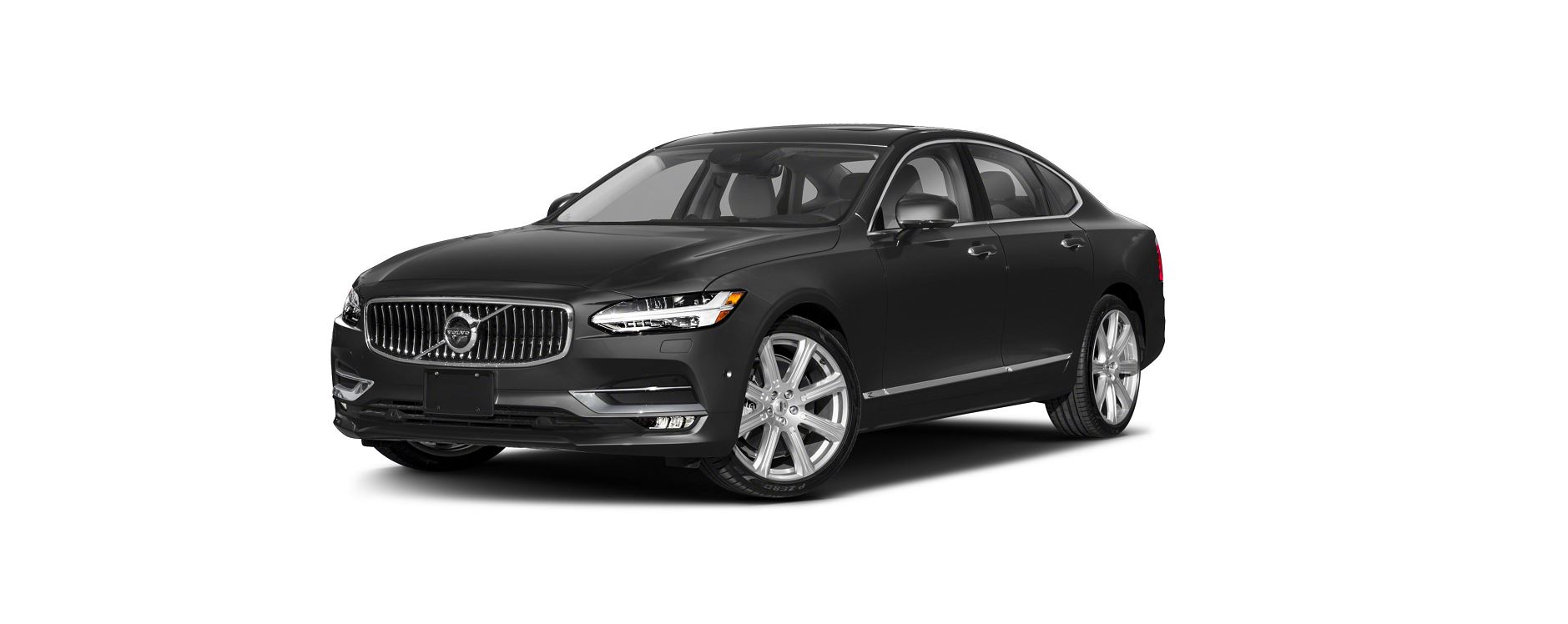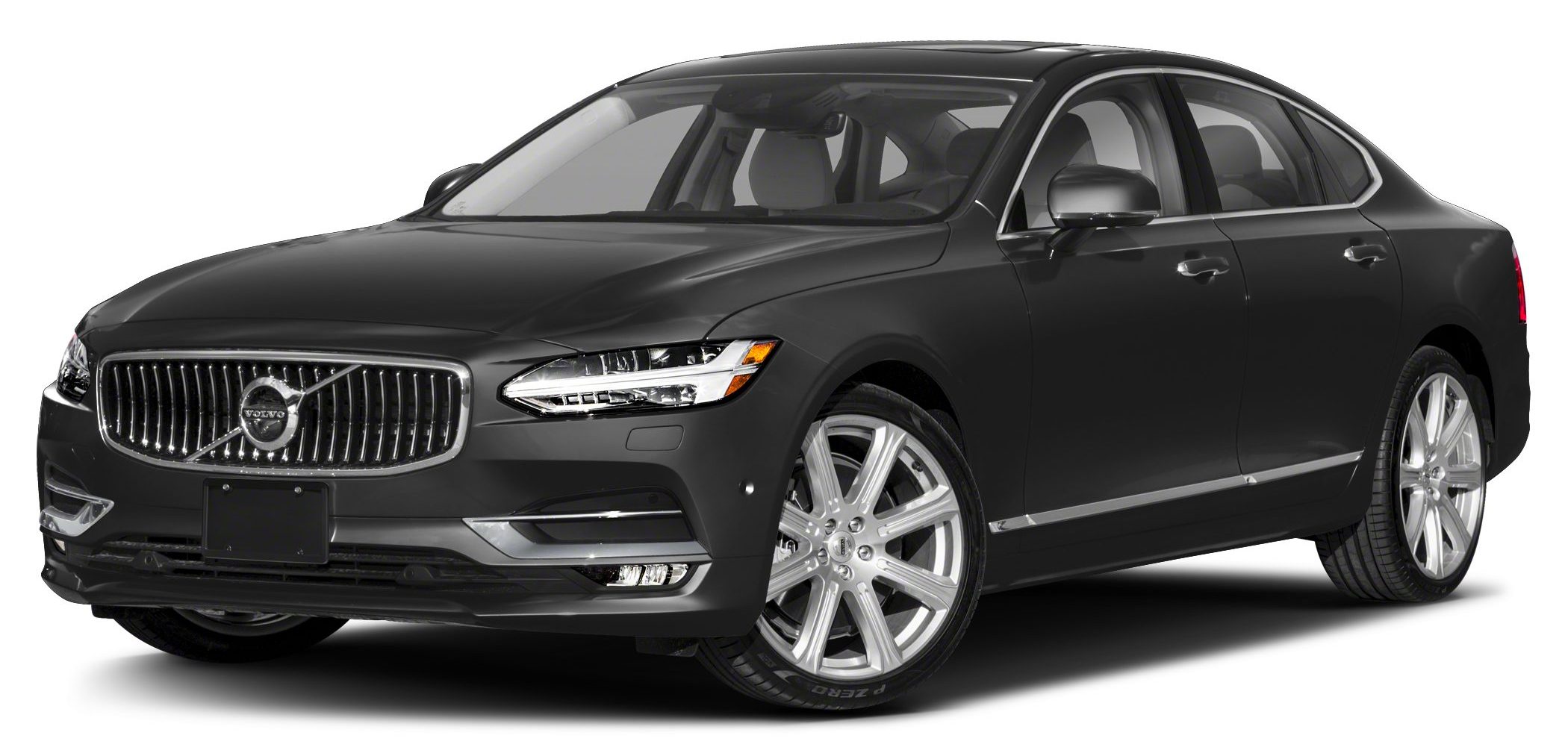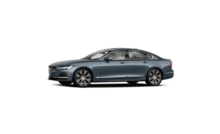- Do not affix any objects, tape or decals in the areas described below.
- Clean camera lenses regularly with lukewarm water and car shampoo – be careful not to scratch the lenses.
- Avoid fitting auxiliary lamps or similar in the grille as this may affect the performance of the front radar unit.
- Use only Volvo genuine emblems in the grille in front of the front radar unit so as not to affect the function of the front radar unit.
Location of front radar unit
Location of rear radar units
Location of the parking sensors around the car
Dirt, ice and snow covering the sensors may cause incorrect warning signals, reduced or no function.
Location of front camera unit
Maintenance of driver support components must only be performed at a workshop – an authorised Volvo workshop is recommended.
Symbols and messages for camera and radar units
- If the driver display shows this symbol and a message, this means that the camera and radar units cannot detect other vehicles, cyclists, pedestrians and large animals in front of the car, and that the car’s camera-based and radar-based functions may be disrupted.
- The following table presents examples of possible causes for a message being shown, along with the appropriate action:
| Cause | Action |
|---|---|
| The surface area in front of the radar unit is dirty or covered with ice or snow. | Clean the surface area in front of the radar unit from dirt, ice and snow. |
| The windscreen surface in front of the camera unit is dirty or covered with ice or snow. | Clean dirt, ice and snow from the windscreen surface in front of the camera unit. |
| Thick fog and heavy rain or snow block the radar signals or the camera view. | No action. Sometimes the unit does not work during heavy rain or snowfall. |
| Water or snow from the road surface swirls up and blocks the radar signals or camera view. | No action. Sometimes the unit does not work on a very wet or snow-covered road surface. |
| Strong oncoming light | No action. The camera unit is reset automatically in more favourable light conditions. |
Limitations for camera and radar units
The camera and radar are aids for intelligent driving that cannot be called upon to achieve intelligent driving, and the necessary safety management must be implemented in order to avoid road safety risks or accidents caused by the driver’s incorrect use of the camera and radar.
Do not position, stick or install anything in front of or around the camera and radar units – this may disrupt camera and radar-based functions. This may result functions being reduced, being switched off completely or giving incorrect function responses.
The following rules are also applicable when a camera is fitted in the windscreen:
- If a scratch, crack or stone chip appears in front of the unit and covers an area of approx. 0.5 × 3.0 mm (0.02 × 0.12 inches) or more, a workshop must be contacted so that the windscreen can be replaced.
- Volvo recommends not repairing cracks, scratches or stone chips in the area in front of the unit – the entire windscreen should be replaced instead.
- Before replacing a windscreen, contact a workshop to verify that the correct windscreen has been ordered and will be fitted.
- The same type of windscreen wipers or windscreen wipers approved by Volvo must be fitted when the windscreen is replaced.
- When replacing the windscreen, the camera unit must be recalibrated by a workshop to ensure the functionality of all the camera-based systems in the car.
If not rectified, it can lead to reduced performance for the driver support systems that use the camera and/or radar units. This may result functions being reduced, being switched off completely or giving incorrect function responses.
Further limitations for radar
The radar unit’s ability to detect a vehicle ahead is greatly reduced if the speed of the vehicle ahead is very different to the speed of your own car.
The radar unit has a limited field of vision. In some situations another vehicle is not detected, or the detection is made later than expected.
The radar unit’s field of vision
- Sometimes the radar unit is late at detecting vehicles at close distances – e.g. a vehicle that drives in between your car and the vehicle ahead.
- Small vehicles, such as motorcycles, or vehicles not driving in the centre of the lane can remain undetected.
- In bends, the radar unit may detect a different vehicle than intended or lose a detected vehicle from view.
In the event of heavy rain or slush or ice on the emblem, radar unit functions may be reduced, completely deactivated, or give incorrect function response.
Further limitations for camera
The cameras have limitations similar to the human eye, i.e. may “see” worse in for example intense snowfall or rain, dense fog, heavy dust storms and snow flurries. Under such conditions, the functions of camera-dependent systems could be significantly reduced or temporarily disengaged.Strong oncoming light, reflections in the carriageway, snow or ice on the road surface, dirty road surfaces or unclear lane markings can also significantly reduce camera function when it is used to scan the carriageway to detect pedestrians, cyclists, large animals and other vehicles.Bicycle racks or other accessories mounted at the rear of the car may obscure the camera’s view.
Further limitations for Park assist camera
- There are “blind” sectors between the cameras’ fields of vision.
- In the park assist camera’s 360° view obstacles/objects may “vanish” in the gaps between the individual cameras.
Pay attention to the possibility that, even if it only looks like a relatively small part of the image is obscured, a relatively large sector could be hidden from view. An obstacle could thereby go undetected until the car is very close to it.
The camera image is adjusted automatically according to prevailing light conditions. Because of this, the image may vary slightly in brightness and quality. Poor light conditions can result in reduced image quality.
Camera unit
The camera unit is used by the following functions:
- Pilot Assist
- Lane assistance
- Assistance at risk of collision
- Driver Alert
- Road Sign Information
- Active main beam
- Park Assist
- Ready to drive notification
Do not attempt to access the camera using sharp or foreign objects through the air vents as this may damage the equipment.
Radar units
Location of front radar unit
- Location of rear radar units
- Modifying radar units may make them illegal to use.
- Avoid fitting auxiliary lamps or similar in front of the grille as this may affect radar unit functionality.
- Use only Volvo genuine emblems in the grille in front of the front radar unit so as not to affect the function of the front radar unit.
Type approval for radar device
| Market | PA | BLIS | Symbol | Type approval |
|---|---|---|---|---|
| Botswana | ✓ | | BOCRA/TA2019/4981 | |
| ✓ | BOCRA/TA/2017/3372 | |||
| Brazil | ✓ | | Este equipamento não tem direito à proteção contra interferência prejudicial e não pode causar interferência em sistemas devidamente autorizados. 06354-19-12386 | |
| ✓ | Este equipamento não tem direito à proteção contra interferência prejudicial e não pode causar interferência em sistemas devidamente autorizados. 03563-17-05364 | |||
| Europe | ✓ | | Hereby, Veoneer US, Inc. declares that the radio equipment type 77V12FLR is in compliance with Directive 2014/53/EU. Operational frequency band: 76-77 GHz Maximum Output Power: <55dBm EIRP The full text of the EU declaration of conformity is available at the following internet address: https://www.veoneer.com/en/regulatory Manufacturer: Veoneer US, Inc. 26360 American Drive Southfield, MI 48034 USA Phone: +1-248-223-0600 | |
| ✓ | Hereby, Hella KgaA Hueck & Co. Declares that the radio equipment type RS4 is in compliance with Directive 2014/53/EU. The full text of the EU declaration of conformity is available at the following internet address: www.hella.com/vcc. Technical information: Frequency range: 24.05 … 24.25 GHz Transmission power: 20 dBm (maximum) EIRP Manufacturer and Address: Manufacturer: Hella KGaA Hueck & Co. Address: Rixbecker Straße 75, 59552 Lippstadt, Germany | |||
| The United Arab Emirates (UAE) | ✓ | | REGISTERED No: ER72325/19 DEALER No: 0020858/10 | |
| ✓ | Registered No: ER53878/17 Dealer No: DA44932/15 | |||
| Ghana | ✓ | NCA Approved: ZRO-1H-7E3-145 | ||
| ✓ | NCA Approved: 1R3-1M-7E1-0B7 | |||
| Indonesia | ✓ | It is forbidden to make changes to specifications that may cause physical and/or electromagnetic disturbances to the surrounding environment | Certificate number: 81226/SDPPI/2022 13809 | |
| ✓ | | Certificate number: 79866/SDPPI/2022 13809 | ||
| Japan | ✓ | | This device is granted pursuant to the Japanese Radio Law under the grant ID n° : R 215-JRA003 This device should not be modified (otherwise the granted designation number will become invalid). | |
| ✓ | This device is granted pursuant to the Japanese Radio Law under the grant ID n° : R 204-750001 This device should not be modified (otherwise the granted designation number will become invalid). | |||
| China | ✓ | Vehicle Driving Assistance Radar System Model: RS4 Micropower Short-Range Radio Transmission Equipment Classification: Class H Frequency Range: 24.05-24.25GHz Radiated Power: 20mW (Equivalent Isotropic Radiated Power) Antenna Type: Integrated Microstrip Patch Array Antenna User Control: No It is not allowed to change the transmission frequency and increase the transmission power (including the additional installation of radio frequency power amplifier) without authorization, and it is not allowed to connect an external antenna or switch to other transmitting antennas without causing harmful interference to various legitimate radio communication services; once any interference phenomenon is found , you should stop using it immediately, and take measures to eliminate the interference before continuing to use the micro-power radio equipment. It must withstand the interference of various radio services or the radiation interference of industrial, scientific and medical application equipment. It must not be used near aircraft and airports. | ||
| Malaysia | ✓ | | HIDF15000171 Model: 77V12FLR Brand: Veoneer US, Inc. | |
| ✓ | CID F 15000578 | |||
| Morocco | ✓ | APPROVED BY ANRT MOROCCO Approval number: MR_20098_ANRT_2019 Date of approval: 2019_06_14 | ||
| Mexico | ✓ | IFT: RLVVE7719-1064 The operation of this equipment is subject to the following two conditions: (1) this equipment or device may not cause harmful interference, and (2) this equipment or device must accept any interference, including interference that may cause undesired operation. | ||
| ✓ | Short-range radar RS4 Hella KGaA Hueck & Co IFETEL: RLVHERS17-0286 Operation of this equipment is subject to the following two conditions: (1) this equipment or device may not cause harmful interference, and (2) this equipment or device must accept any interference, including interference that may cause undesired operation. | |||
| Moldova | ✓ | ✓ | | |
| Nigeria | ✓ | ✓ | Connection and use of this communications equipment is permitted by the Nigerian Communications Commission. | |
| Oman | ✓ | | Registered No: R/7713/19 Dealer No: D172338 | |
| ✓ | Registered No: R/3957/17 Dealer No: D080134 | |||
| Paraguay | ✓ | | NR: 2019-07-I-0397 | |
| Serbia | ✓ | | И011 19 | |
| ✓ | И011 17 | |||
| Singapore | ✓ | | DA 106706 | |
| ✓ | DA 103238 | |||
| UK | ✓ | | Hereby, Veoneer US, Inc. declares that the radio equipment type 77V12FLR is in compliance with radio regulation 2017. Operational frequency band: 76 – 77 GHz/ Maximum output power: < 55 dBm e.i.r.p | |
| ✓ | Hereby, Hella GmbH & Co. KGaA declares that the radio equipment type RS4 is in compliance with Radio Equipment Regulations of the United Kingdom. The full text of the United Kingdom declaration of conformity is available at the following internet address:www.hella.com/vcc Technical information: Frequency band: 24.05 … 24.25 GHz Transmission power: 20 dBm (max.) EIRP Manufacturer and Address: Hella GmbH & Co. KGaA Rixbecker Straße 75, 59552 Lippstadt, Germany | |||
| South Africa | ✓ | | TA-2019/1378APPROVED | |
| ✓ | TA-2016/3407APPROVED | |||
| South Korea | ✓ | | R-C-1VN-77V12FLR | |
| ✓ | R-CMM-HLA-RS4 As this device is suitable for business (Class A) electromagnetic waves, the seller or user should be aware of this point, and it is intended for use outside the home. | |||
| Taiwan | ✓ | | CCAI19LP2310T1 Warning For low-power RF motors that have passed type approval, companies, firms or users are not allowed to change the frequency, increase the power, or change the features and functions of the original design without permission. The use of low-power radio frequency motors shall not affect flight safety and interfere with legal communications; if any interference is found, it should be stopped immediately, and it can be used until there is no interference. The legal communication referred to in the preceding paragraph refers to radio communication operated in accordance with the provisions of the Telecommunications Law. Low power radio frequency motors are subject to interference from legal communications or radio wave radiating motor equipment for industrial, scientific and medical use | |
| ✓ | ||||
| CCAB17LP0470T5 Warning For low-power RF motors that have passed type approval, companies, firms or users are not allowed to change the frequency, increase the power, or change the features and functions of the original design without permission. The use of low-power radio frequency motors shall not affect flight safety and interfere with legal communications; if any interference is found, it should be stopped immediately, and it can be used until there is no interference. The legal communication referred to in the preceding paragraph refers to radio communication operated in accordance with the provisions of the Telecommunications Law. Low power radio frequency motors are subject to interference from legal communications or radio wave radiating motor equipment for industrial, scientific and medical use | ||||
| Thailand | ✓ | ✓ | 1) Telecommunication equipment and this equipment Conforms to standards or requirements of the NBTC 2) This radiocommunication equipment has a level of electromagnetic radiation in accordance with Safety standards for human health from the use of radios communication as announced by the National Telecommunications Commission | |
| Ukraine | ✓ | | UA RF: 1VEON2FLR the real VEONEER US, INC. declares that the type of radio equipment 77V12FLR complies with the Technical Regulation of radio equipment; the full text of the declaration of conformity is available on the website at the following address: https://www.veoneer.com/en/regulatory | |
| ✓ | Hereby HELLA GmbH & Co. KGaA declares that the RS4 radio equipment complies with the Technical Regulations for Radio Equipment and Directive 2014/53/EU. The full text of the declaration of conformity is available at: www.hella.com/vcc Frequency range: 24.05 – 24.25 GHz Transmission power: 20 dBm (max.) EIRP | |||
| Vietnam | ✓ | | 77V12FLR | |
| ✓ | C0173191017AF04A2 | |||
| Zambia | ✓ | | ZMB/ZICTA/TA/2019/6/61 | |
| ✓ | ZMB/Z |




